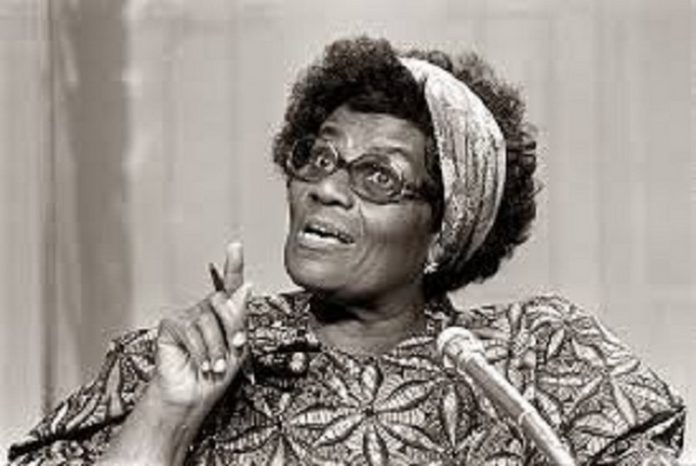Annie Ruth Baëta was born on 7 October 1918 in Lomé, French Togoland. Her parents were teachers, Henrietta Baëta and Presbyterian minister, Robert Domingo Baëta. She belonged to the Ewe ethnic group of southeastern Ghana and Togo. A member of the notable Baëta family, she was one of eight children
Her older brother, Christian Baëta was an academic and Presbyterian minister who was elected the Synod Clerk of the Evangelical Presbyterian Church of the Gold Coast from 1945 to 1949 and was instrumental in the establishment of the University of Ghana, Legon in 1948. Her parents wanted her to have an English education and she lived in the coastal town of Keta (then in British Togoland) with her maternal grandmother.
She attended Achimota College and earned her teacher’s certificate in 1937. She was Headmistress and Schoolteacher at the Evangelical Presbyterian Girls School from 1940 to 1946. After the buildings of the Evangelical Presbyterian School for Girls were washed away by the ocean in 1940, the girls were moved to the Evangelical Presbyterian School for Boys.
The school was overcrowded, and Baeta knew it would be difficult to find funding for new buildings. She approached the Evangelical Presbyterian Church Choir and transformed it into a drama group that put on the George F. Rool musical David the Shepherd Boy. The performances were successful and the group was invited to perform in major Gold Coast cities and in Togo. Baeta was able to raise funds for a new school for the girls that was built by December 1945.
Baeta’s time with the Evangelical Presbyterian Girls School was fulfilling but left her restless. She passed the London Matriculation Examination in 1945. Her elder brother Christian made inquiries to the University of London on her behalf and her mother secured loans for her. She was admitted to the London School of Economics and Political Science in 1946.
Her male colleagues from the Gold Coast urged her to abandon her studies, thinking them too difficult for a woman. One offered to arrange a position for her at the Paris Academy to study dress design. She told them she would return to the Gold Coast if she didn’t pass her first examination. She passed, and was no longer bothered by the men. She received her LLB in 1949 and was called to the Bar at Lincoln’s Inn the following year.
Baëta also participated in religious and social work during her free time in London. She worked with youth camps organised by the Young Women’s Christian Association (YWCA) and was elected to the Executive Committee of the World YWCA during her final years as a student.
From 1955 to 1960, she was president of the YWCA. She and her husband adopted a child, Rheinhold, in 1959. In 1959, she became a judge for the Circuit Court. From 1961 to 1976 she was a council member of the University of Ghana. In 1962 she was appointed to represent Ghana on the United Nations Commission on the Status of Women. She was awarded an honorary law degree from the University of Ghana in 1974.
From 1993 until her death, Jiagge served on Ghana’s Council of State. She died on 12 June 1996 in Accra. The Justice Annie Jiagge Memorial Lectures were established by the Ministry of Women and Children in 2009. A boarding house, the Annie Baëta Jiagge House, formerly, House 17, at her alma mater, Achimota School was named in her memory in recognition of her role as a trailblazer in the legal profession in Ghana.

